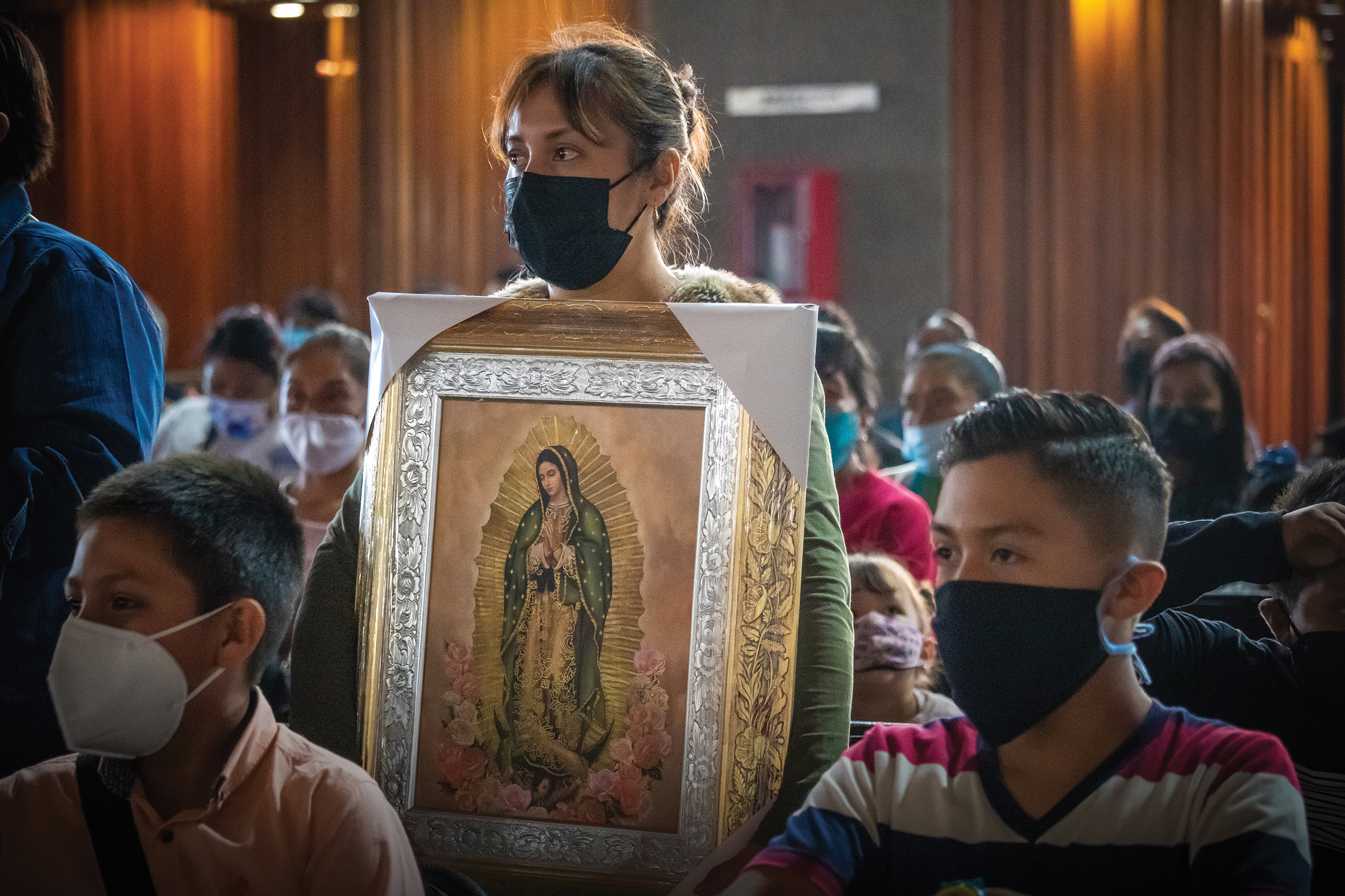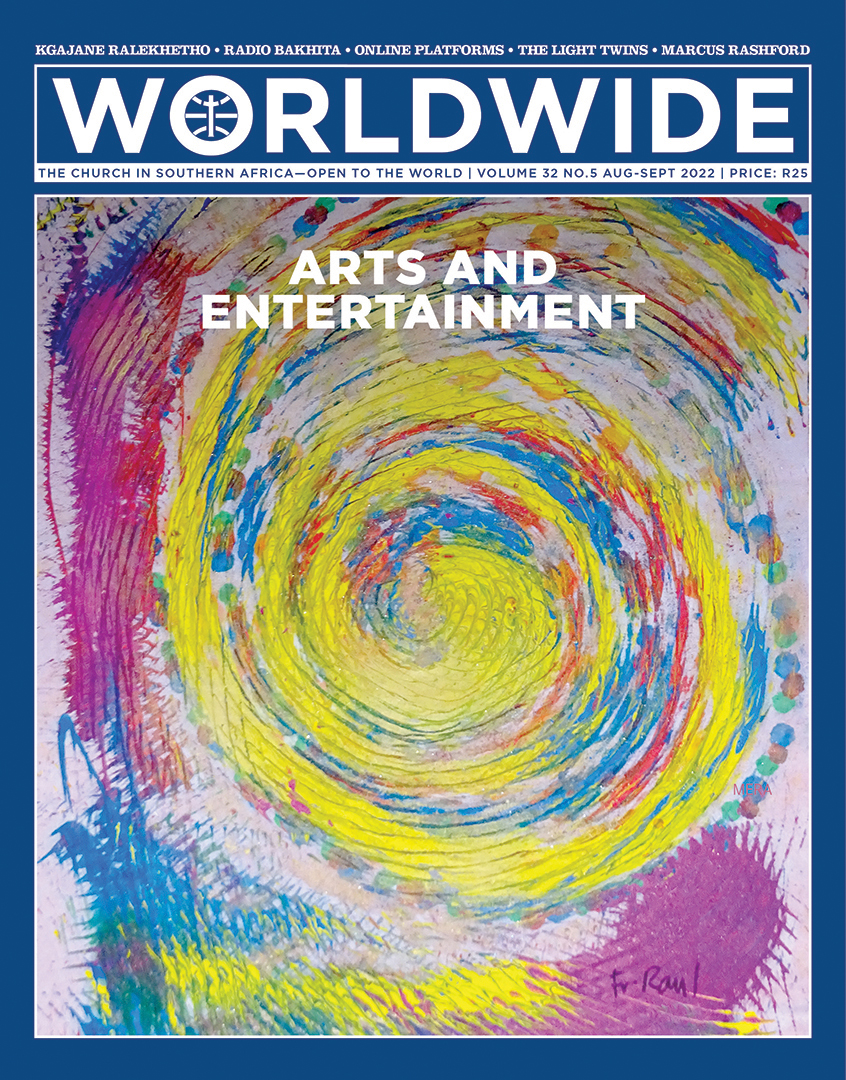
ARTS AND ENTERTAINMENT
This painting represents the turmoil experienced during a time of crisis. Typhoon is a symbol of anxiety, chaos, destruction and struggle. However, once those trial moments are surmounted, the inner energy of the typhoon brings transformation, putting life in order and strengthening one’s spirit. Emotional typhoon seems to tear life apart when it hits. One can’t turn away from it, but once it is over, it brings new potential; visions become clear and one sees brighter days ahead.
PAINTING BY FR RAUL TABARANZA MCCJ
WORLD REPORT • CATHOLIC RADIO NETWORK
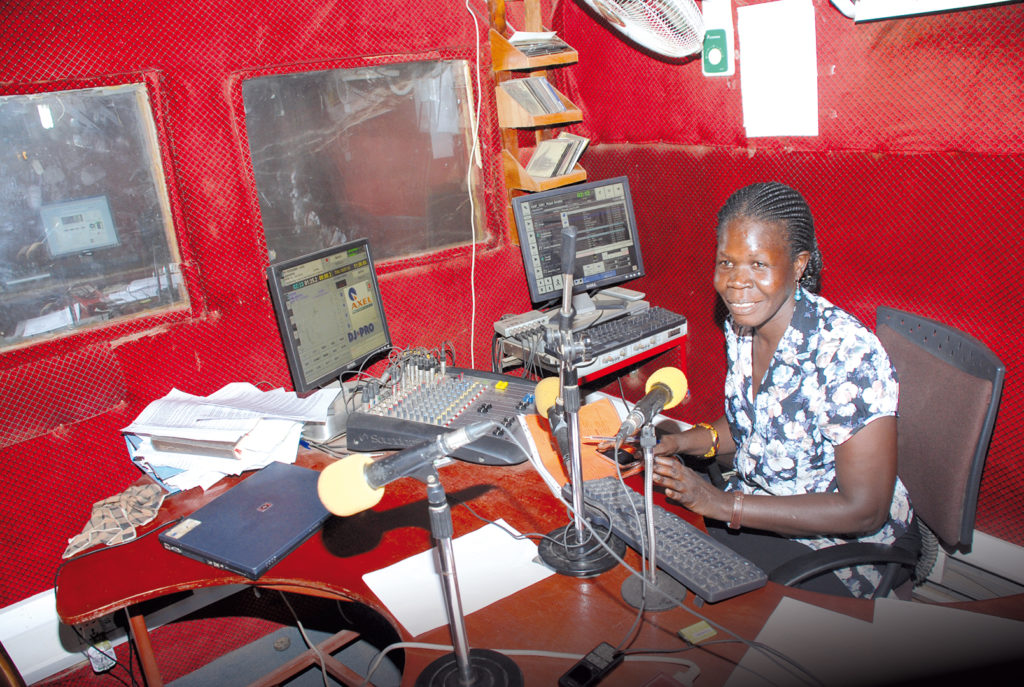
Waves for peace in the world’s youngest country
BY Brother Alberto Lamana MCCj | Juba, South Sudan
THE SUDANESE based Catholic Radio Network (CRN) project was launched in 2005, during the period of the Government of National Unity between Sudan and South Sudan which led to the declaration of independence of South Sudan via the referendum celebrated on 9 July 2011. The initiative to start the project came from the Comboni Missionaries and Comboni Missionary Sisters, who have always accompanied the South Sudanese people, even during the decades of violence before independence. Today the CRN is part of the evangelisation plan of the South Sudanese Catholic Church, which, in addition to its commitment in the fields of education, health and pastoral formation, is clearly committed to the use of the media, in particular radio, for the promotion of justice and peace in the country.
CRN’s programming rests on four pillars: evangelisation, information, education and entertainment
Today the CRN is made up of nine radio stations: The first to be established was Radio Bakhita, in Juba, the current capital of South Sudan, in 2005. Later came others: Radio FM East, from the diocese of Yei; Radio FM Emmanuel, from the diocese of Torit; Radio FM Anisa, from the diocese of Yambio; Radio FM Good News, from the diocese of Rumbek, Radio FM Don Bosco, in Tonj County, also in Rumbek; Radio FM Voice of Hope from the Diocese of Wau; Saut al Mahabba (Voice of Love) from the Diocese of Malakal and Radio FM Voice of Peace from the Diocese of El-Obeid Gidel in the Nuba Mountains. In total, the Catholic Radio Network reaches a population of six million people, in addition to some 150 000 people in the Nuba Mountains, a border territory between Sudan and South Sudan.
CRN’s programming rests on four pillars: evangelisation, information, education and entertainment. Mary Ajith, the current director of the CRN, tells us that all the stations share the same editorial line and administrative policies. The radio stations broadcast in Arabic and English, the country’s two official languages, although there is also specific content in some of the eight most widespread local languages in the country’s states, equivalent to our provinces.
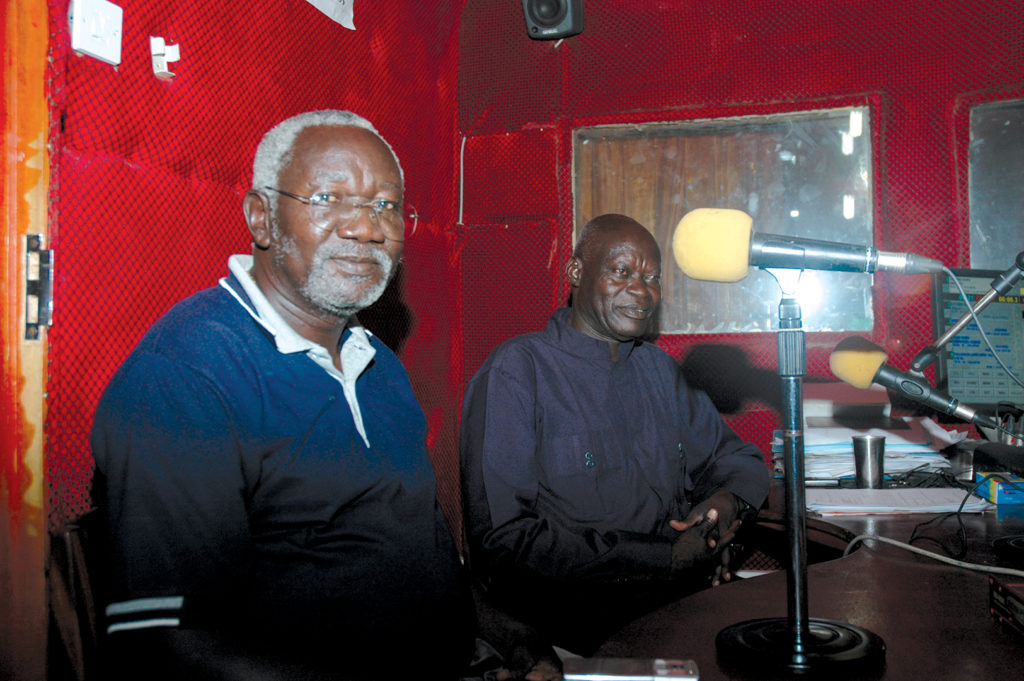
Useful topics
Among the diverse and varied content of the programming, the following stand out:
- Education in civil and democratic rights. This is essential education in a country which, two years after gaining independence, after more than half a century of attacks and conflicts with the central government in Khartoum, suffered a civil conflict, in 2013. Power struggles between President Salva Kiir, a Dinka, and Vice-President Riek Machar, a Nuer, once again fuelled the fighters, causing more than 100 000 deaths and four million internally displaced people. In the current context, radio is intended to be a tool to promote reconciliation and peace.
- Health education. Programmes are dedicated to improving child nutrition and disease prevention. For example, Voice of Peace in the Nuba Mountains has seen a decrease in malaria cases since the advent of radio by disseminating practical health advice, such as the use of mosquito nets in homes.
- Citizen participation through debates on political, economic, social and religious issues.
Local journalists
Proximity and knowledge of the culture are essential for the stations’ broadcasted messages to reach the hearts and minds of the people. For this reason, the teams are made up of young professionals from the local communities, who communicate more easily in their own language. The radios also try to share oral expressions of their own culture, songs and the history of the people, enriching the younger generations.
Radio Voice of Peace
According to the author of the article, who worked as technical architect of Radio Bakhita and the rest of the CRN to set up the stations and make them operational, Radio Voice of Peace has programmes that have increased the school attendance of young girls by making women’s issues visible, through discussions on polygamy, child marriage, girls’ reduced school attendance and domestic violence. Thanks to this rise in awareness, they have been able to increase their presence in the classroom.
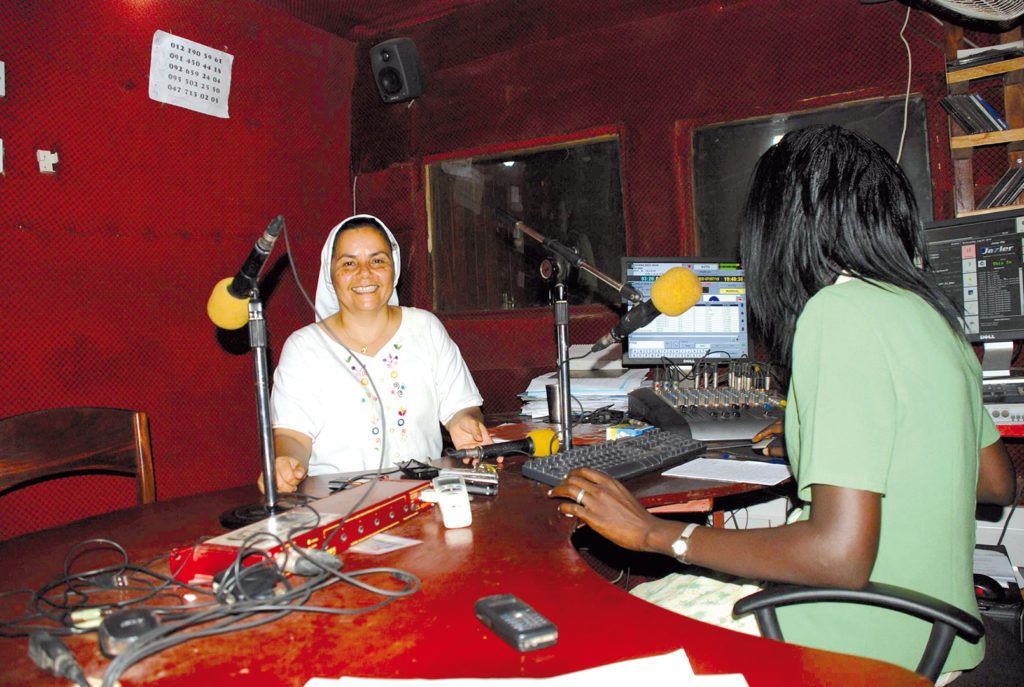
Training journalists
Over time, the Catholic Radio Network has become a training centre for new generations of journalists, with specialised courses in Peace Journalism, with a focus on developing skills for reporting in conflict situations. The centre also serves to connect stations with partners inside and outside South Sudan, as well as providing technical support to broadcasters.
At the service of peace
The Catholic Radio Network employs eight people at the head office, and there are 20 to 25 people working in each station, including volunteers. More than 200 people are therefore committed to informing and training, as well as entertaining and accompanying the South Sudanese people from day to day. This service is offered in order to contribute to the consolidation of a new country with the conviction that peace is built via the airwaves, through dialogue and listening.

